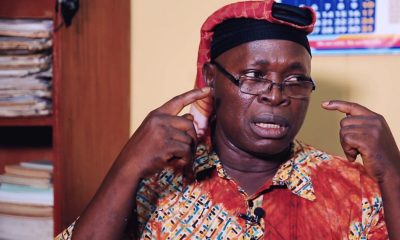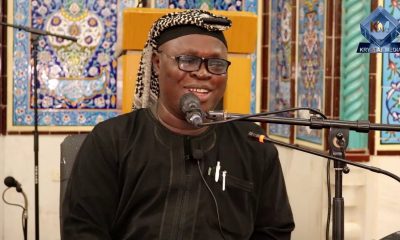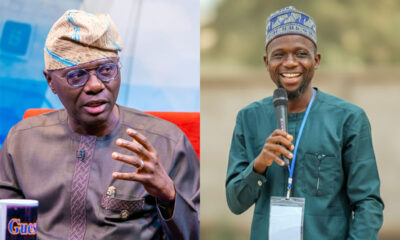News
MURIC kicks as WAEC supervisor disallows use of hijab
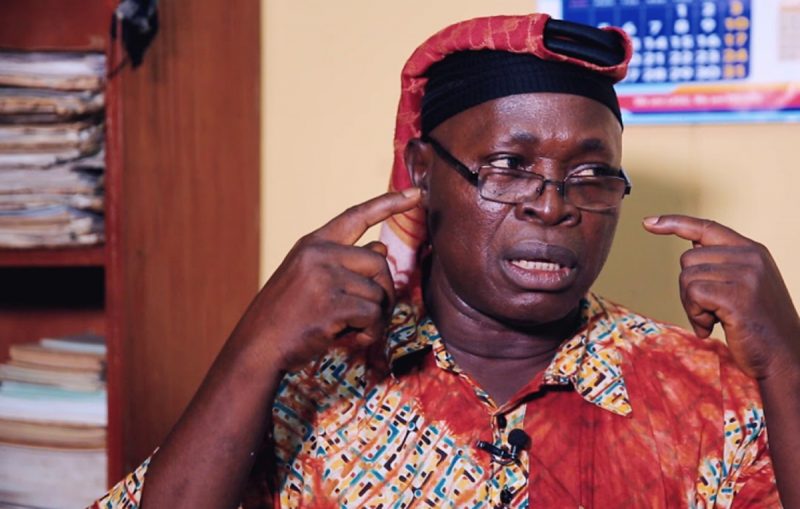
MURIC kicks as WAEC supervisor disallows use of hijab
The Muslim Rights Concern has kicked against the action of the Geography Supervisor of the West African Examinations Council for forcing female Muslim candidates to remove their hijab.
The Founder and Executive Director of MURIC, Prof. Ishaq Akintola, made the allegation in a statement issued on Friday.
Akintola asked WAEC authorities to sanction the erring supervisor as a deterrent to other ignorant religious bigots like him.
He said: “The Geography Supervisor of the WAEC examination taken on Friday 31st May, 2024 at the International School, Ibadan, infringed on Allah-given fundamental rights of female Muslim students by forcing all of them to remove their hijabs before entering the examination hall.
“This is intimidation, coercion and harassment. The supervisor’s action is illegal, illegitimate, unlawful and unconstitutional. It is also in disregard of the rule of law and in contempt of the rulings of the courts of the land, including the Supreme Court.
“We note with pleasure that WAEC had issued a circular which allowed candidates to use hijab and forbade their harassment. We therefore call upon WAEC authorities to discipline this erring supervisor.
READ ALSO:
- Rainstorm destroys 100 houses in Plateau
- Four suspected terrorists surrender, blame severe hunger
- Enugu monarch, 4 others remanded over murder of policemen
“The supervisor’s action is equally provocative and capable of causing public disorder. We note with much concern that instead of confronting those who violate their rights, Muslims in the South-West have been taking legal action. What is most disturbing is that even though the courts have been ruling in favour of the Muslims, their oppressors have always been recalcitrant and stubbornly refusing to comply with court rulings.
“This is a sad narrative in the history of inter-religious relationship in the South-West. The natural concomitant followup is that very soon, Muslim leaders in the region will leave the Muslim youths and ask them to take their destiny in their hands since the law appears helpless. The Muslim youths will have no choice than to defend themselves.
“Those who refuse to respect the rule of law will have to face the rule of chaos. They will face the anger of oppressed Muslims who have been pushed to the wall. It is simply impossible for Muslims in the South-West to be law-abiding if the Christians are lawless. There is no other way to put it.
“From now on, examination centres and workplaces where Allah-given fundamental human rights of Muslims are violated will be blacklisted for future peaceful picketing. It is the next stage in the struggle to liberate Muslims from the shackles of oppression, downpression and repression.”
MURIC kicks as WAEC supervisor disallows use of hijab
News
UniAbuja Student Sadiya Usman Found Safe After Two Days Missing

UniAbuja Student Sadiya Usman Found Safe After Two Days Missing
The University of Abuja (UniAbuja) has confirmed that 100-level student Sadiya Usman has been found safe after being reported missing earlier this week. The university expressed relief and gratitude to the public and security agencies for their assistance in locating the student.
Sadiya Usman, who is enrolled in the Department of Accounting, was last seen leaving her residence at Kontagora Estate, Gwagwalada, Abuja, on Tuesday, 18 February 2026, at around 8:00 a.m. She was on her way to the university’s Main Campus to sit for her Computer-Based Test (GST 111) but did not arrive for the exam.
READ ALSO:
- Lassa Fever Deaths in Nigeria Rise to 51 After 15 Killed in Early February – NCDC
- Mob Kills Injured Motorcycle Rider After AK‑47 Rifles, Ammunition Found in Crash Scene
- Tacha Condemns False Rape Allegations After Mirabel Admits Fabrication
After her disappearance, her guardian reported her missing when all attempts to reach her by phone were unsuccessful. The university promptly activated internal safety protocols and collaborated with security agencies, campus authorities, and the public to ensure her safe recovery.
The student was eventually located late on Thursday, 20 February 2026, around 11:49 p.m., and is reported to be safe, unhurt, and in stable condition. Authorities confirmed that coordinated efforts between the university, law enforcement, and concerned members of the public were instrumental in her recovery.
The university reaffirmed its commitment to student safety and welfare, promising continuous updates as necessary. It also thanked those who responded to the public appeal for information and urged students and parents to remain vigilant about safety.
This incident highlights the importance of campus security measures, timely reporting of missing persons, and the role of community involvement in safeguarding students.
UniAbuja Student Sadiya Usman Found Safe After Two Days Missing
News
Police to Arrest TikToker Mirabel After She Recants False Rape Claim
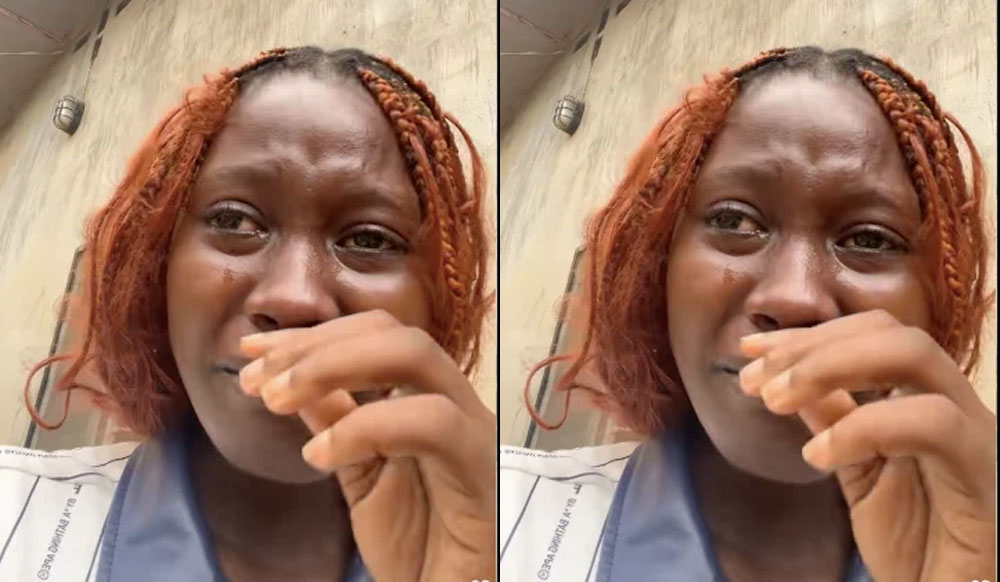
Police to Arrest TikToker Mirabel After She Recants False Rape Claim
The Ogun State Police Command has confirmed plans to arrest and prosecute TikTok user Mirabel after she admitted that her viral rape allegation was false, authorities and investigative reports indicate.
Mirabel, a social media influencer, first sparked national attention after posting videos alleging she had been sexually assaulted in her home in Ogijo, Ogun State. The posts quickly went viral, drawing widespread outrage, calls for justice, and prompting the police to launch an immediate investigation.
An audio recording of a phone conversation, shared online by social media personality VeryDarkMan (VDM), reportedly captures Mirabel acknowledging that parts of her story were fabricated. In the recording, she apologises and admits creating a threatening TikTok account to support her narrative, claiming she had been taking drugs at the time and “was not thinking clearly” when posting the videos.
READ ALSO:
- Again, Early Morning Blaze Destroys Dozens of Shops in Kano Market
- Suspected Terrorists Warn Kebbi Residents: Pay ₦100 Million or Face Attack
- ICPC Searches El-Rufai’s Abuja Home Amid Multi-Agency Corruption Investigation
A police source said senior officers, including the Divisional Police Officer, were at the hospital where Mirabel was receiving medical care. Once she is discharged, she will be taken into custody and formally charged under provisions of Nigeria’s Criminal Code relating to false reporting of sexual offenses. “The essence is to serve as a deterrent to others,” the source added.
The Ogun State Police had earlier ensured that Mirabel received medical treatment and support, following procedures to protect her health while the investigation continued. The Lagos State Domestic and Sexual Violence Agency (DSVA) confirmed that the incident fell outside its jurisdiction and forwarded all relevant information to the Ogun authorities.
This development has sparked public debate about the responsible use of social media, the impact of false allegations, and the importance of evidence-based reporting. Legal experts warn that fabricating sexual assault claims can carry serious criminal penalties and may undermine the credibility of genuine victims.
Authorities continue to urge the public to avoid spreading unverified claims and to cooperate with law enforcement in ongoing investigations. Updates on the case will be issued by the Ogun State Police Command as formal legal proceedings begin.
News
Tinubu Reduces Reliance on U.S, Strengthens Defence Partnerships With Turkey, EU
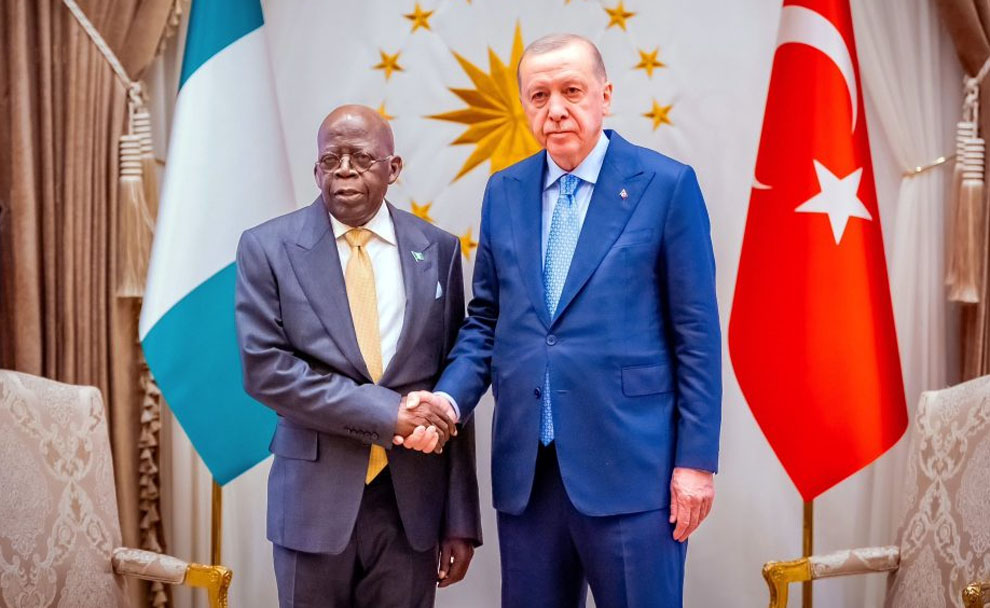
Tinubu Reduces Reliance on U.S, Strengthens Defence Partnerships With Turkey, EU
President Bola Tinubu has commenced a strategic expansion of Nigeria’s defence diplomacy, engaging the European Union (EU) and Turkey to strengthen the nation’s security architecture while reducing overreliance on the United States. The initiative comes as Nigeria faces multiple security threats, including Boko Haram insurgency in the north-east, farmer-herder clashes in the north-central region, separatist violence in the south-east, and escalating banditry in the north-west.
The move coincided with a visit to Brussels by National Security Adviser Mallam Nuhu Ribadu, who led discussions at the first EU-Nigeria Peace, Security, and Defence Dialogue. Both sides agreed to deepen collaboration on regional stability, counter-terrorism, and violent extremism, while enhancing intelligence sharing, maritime security, and cybersecurity cooperation. An EU diplomat in Abuja emphasized that the bloc would provide non-lethal military support, while respecting Nigeria’s sovereignty, describing the EU as “more consistent, more reliable, and more coherent than the United States” in delivering security assistance.
READ ALSO:
- Again, Early Morning Blaze Destroys Dozens of Shops in Kano Market
- Suspected Terrorists Warn Kebbi Residents: Pay ₦100 Million or Face Attack
- ICPC Searches El-Rufai’s Abuja Home Amid Multi-Agency Corruption Investigation
During his state visit to Turkey in January 2026, President Tinubu also held defence discussions with Turkish officials. Turkish companies pledged to supply military equipment, advanced systems, and tactical hardware, while exploring joint local production arrangements with Nigeria. Türkiye is currently regarded as a global leader in armed drones, which could bolster Nigeria’s counter-terrorism operations and reconnaissance capabilities.
Despite these new partnerships, Nigeria continues security cooperation with the United States, including deployments by United States Africa Command (AFRICOM) to support training, intelligence sharing, and operational planning. Recent U.S. personnel arrivals in Bauchi State aim to enhance counter-terrorism capacity without taking direct combat roles, operating under Nigerian command structures.
Analysts say Nigeria’s diversified defence diplomacy seeks to reduce dependency on a single partner, while providing access to a wider range of technology transfer, training opportunities, procurement options, and operational expertise. The strategy also reflects a broader trend of African nations balancing traditional defence alliances with emerging strategic partners to better address evolving security threats.
With regional instability and domestic insurgency on the rise, Nigeria’s engagement with Turkey, the EU, and other partners is expected to strengthen the Nigerian Armed Forces, enhance counter-terrorism operations, and secure national and regional stability.
Tinubu Reduces Reliance on U.S, Strengthens Defence Partnerships With Turkey, EU
-

 International2 days ago
International2 days agoCanada Opens New Express Entry Draw for Nigerian Workers, Others
-

 Politics14 hours ago
Politics14 hours agoPeter Obi Launches ‘Village Boys Movement’ to Rival Tinubu’s City Boys Ahead of 2027
-

 News21 hours ago
News21 hours agoPolice to Arrest TikToker Mirabel After She Recants False Rape Claim
-

 News3 days ago
News3 days agoKorope Drivers Shut Down Lekki–Epe Expressway Over Lagos Ban (Video)
-

 Health3 days ago
Health3 days agoRamadan Health Tips: Six Ways to Stay Hydrated While Fasting
-

 Entertainment3 days ago
Entertainment3 days agoActress Destiny Etiko Breaks Silence on Alleged Nollywood Betrayal
-

 metro2 days ago
metro2 days agoOsun Awards 55.6km Iwo–Osogbo–Ibadan Road Project to Three Contractors
-

 International22 hours ago
International22 hours agoEpstein, Ex-Israeli PM Named in Alleged Profiteering From Boko Haram Crisis



